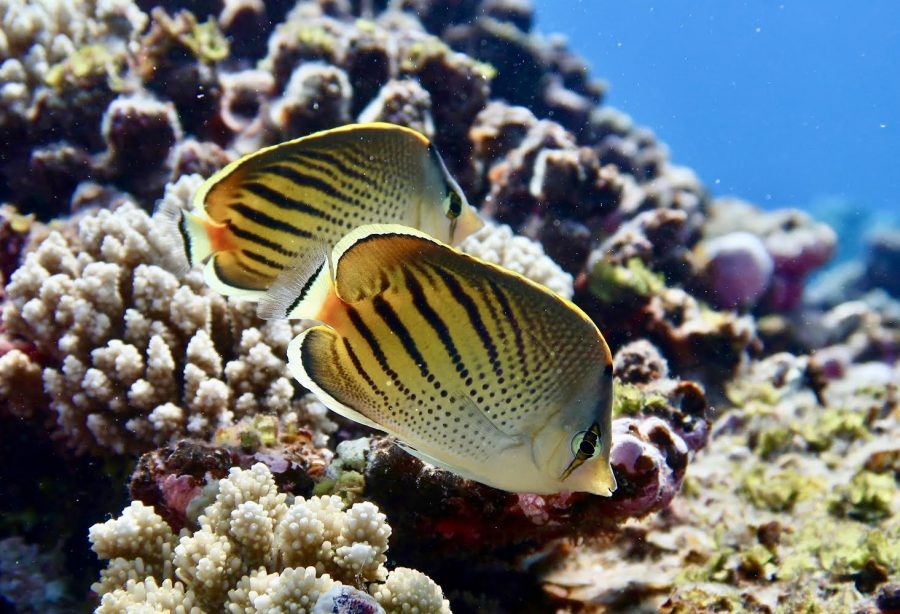UT-Austin researchers find that picky-eater fish threaten coral reef food webs around the world
September 28, 2021
UT-Austin researchers found that future fish extinctions will jeopardize delicate coral reef ecosystems because picky-eater fish rely on specific species to live, according to a research paper published Tuesday.
Coral reefs consist of specialized feeder fish so they are threatened by the vulnerability of their food webs, according to the paper published in the Proceedings of the National Academy of Sciences. Researchers found that coral reefs around the world have similar trophic pathways where many fish are picky eaters, as they consume only one specific type of prey. Fish extinctions, a looming threat because of climate change and overfishing, will jeopardize these delicate ecosystems, the paper said.
“We found that a lot of these fishes were specialists, so they were these picky eater fishes,” said Jordan Casey, an assistant professor at the UT Marine Science Institute and an author on the paper. “That makes food webs really vulnerable because if you lose a specialist fish, nothing else fits that trophic interaction space … so that jeopardizes the entire system.”
Coral reefs need to be efficient in how they cycle their energy and resources because they are typically located in nutrient-poor water, said marine science assistant professor and author on the paper Simon Brandl.
“We often thought that coral reef fishes are quite opportunistic in what they eat,” Brandl said. “But it turns out that most of the fish that live on coral reefs, no matter where you are in the world, really like to pick on a few things.”
The survival of coral reefs relies on a delicate ecosystem where specific predator-prey relationships between fish dictate the health of the entire food chain. If one species becomes extinct, it will impact the entire food chain, Brandl said.
“If you’re losing this pathway of a fish eating a certain snail because the fish is gone, then you are losing one of the many pathways that coral reefs used to create these amazing oases of life,” Brandl said.
While a single individual can’t save an entire ecosystem, Brandl said people can make a small impact if they are mindful of the fish they eat.
“I think we can all make differences individually to act against climate change, for instance, just trying to reduce one’s carbon footprint,” Casey said. “I mean every little bit counts. It all starts at the individual level… if we want to preserve these ecosystems in the long run.”











